Search the Blog
Categories
- Books & Reading
- Broadband Buzz
- Census
- Education & Training
- General
- Grants
- Information Resources
- Library Management
- Nebraska Center for the Book
- Nebraska Memories
- Now hiring @ your library
- Preservation
- Pretty Sweet Tech
- Programming
- Public Library Boards of Trustees
- Public Relations
- Talking Book & Braille Service (TBBS)
- Technology
- Uncategorized
- What's Up Doc / Govdocs
- Youth Services
Archives
Subscribe
Monthly Archives: November 2019
Friday Reads: Live Young Forever
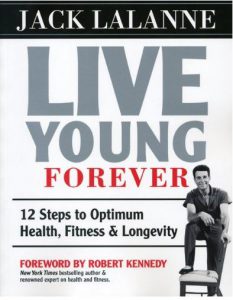
What I was really looking for was a biography about Jack LaLanne, but unfortunately, I was not able to find any. The next closest thing (although I later found out there was a documentary film made about Jack, called Anything is Possible, but only about 39 minutes in length) was Live Young Forever, which did just fine and it was written by Jack himself. How did I get to the point of seeking out this book? Well, for one I never learned of Jack’s world famous feats until years after they occurred, having mostly known him for his juicer infomercials that aired when I was a kid after the Saturday cartoons. Jack’s exercise show was before my time. I remember him as the old health nut in the jumpsuit hawking juicing machines. Then recently, I clicked PBS on and got intrigued by the documentary called Fat, Sick, and Nearly Dead. The documentary follows Australian entrepreneur, author, and filmmaker Joe Cross across the U.S., as he went on a 60-day journey of consuming only juices from fresh fruits and vegetables. While Jack advocated healthy doses of exercise, juice, fish, fruits, and vegetables, Joe’s condition (he weighed over 300 pounds and had a host of health conditions) necessitated a juice only “fast” to kick start his health. Then I realized I’d unfortunately (for me) sold my mom’s Jack LaLanne juicer at a garage sale for $10, so it was off to find another.
Back to Jack. For anyone looking to live a healthier lifestyle, this book has quite a few essential elements such as diet, exercise, and motivation. However, it was Jack’s personal stories that I liked the best. Aside from his health advocacy and TV show, this book also contains numerous stories of his famous feats. Such as a 21-year old Arnold Schwarzenegger, who in 1968 came to Venice beach in California and witnessed a 54-year old LaLanne doing chin-ups and push-ups. Arnold declared a challenge, and lost badly to LaLanne. Said Arnold: “That Jack LaLanne’s an animal! I was sore for four days. I couldn’t lift my arms.” Some of Jack’s other feats included:
- 1955 (age 41) swam from Alcatraz Island to Fisherman’s Wharf, while handcuffed;
- 1956 (age 42) set a claimed world record of 1,033 push-ups in 23 minutes;
- 1959 (age 45) did 1,000 jumping jacks and 1,000 chin-ups in 1 hour, 22 minutes;
- 1974 (age 60) swam the same Alcatraz to Fisherman’s Wharf route, handcuffed, shackled at the ankles, and towing a 1,000 lb boat;
- 1976 (age 62) swam one mile in Long Beach Harbor, handcuffed and shackled, towing 13 boats to represent the original 13 colonies, and containing 76 people; and
- 1984 (age 70) swam 1 mile in Long Beach Harbor, handcuffed and shackled, towing 70 rowboats containing various guests.
Finally, my favorite Jack LaLanne quote:
“15 minutes to warm up? Does a lion warm up when he’s hungry? ‘Uh oh, here comes an antelope. Better warm up.’ No! He just goes out there and eats that sucker.”
Pretty Sweet Tech: What is a Chatbot?
Right now, I’m exploring the use of chatbots in the library. As with any technology, there are pros and cons. Essentially, chatbots simulate human conversation in text or voice. More often than not, you will encounter chatbots in large banks or major corporations.
Most chatbots are designed to handle specific tasks, not full conversations. For example, a bank chatbot might be designed to handle requests to check a bank balance, find most recent transactions, or deposit checks. However, if you make a request outside the chatbot’s specialized task, the system breaks down and leads to customer frustration. Better designed bots will send the human to a real human agent after a certain point. This is the computerized chatbot frustration with which most people are familiar today.
This is changing. In the recent past, people could always tell when they encountered a bot in a text chat or phone operating system. However, natural language processing (NLP) is getting better. NLP is the heart of modern human-computer interaction, and will eventually allow computers to understand human requests without humans having to phrase our requests in a specific format. For librarians, that means Boolean search format, or choosing the right keyword alternative to narrow down search results, or uncover a certain navigation menu.
Humans naturally want to communicate using natural speech, including colloquialisms, slang, various accents, and more. Computers are getting getting better at this because machine learning systems are improving. NLP is a subset of machine learning (ML).
Machine learning-based systems like chatbots learn from large sets of data. ML algorithms are designed to study large amounts of data and find patterns. The system learns from the information that is available, and will make predictions based on the patterns it finds in the data. Similar to how humans learn. We do the best we can with the information we have available at the time. Processes improve as information improves.
As you can imagine, machine learning systems are improving because our available data sets are improving. For example, the natural language processing system from Google has access to text conversations, voice assistant archives, email conversations and more. Is it any surprise that their NLP systems are one of the best?
With more data, the machine learning algorithms have better information and can make a more informed guess about what the person means with a certain request. For this reason, we can all expect chatbots to become more popular and take over more routine tasks. Taking orders in a restaurant, or scheduling meetings would be a prime example. There are already bots being refined to accomplish these tasks.
The chatbot I’m working on now does not use more advanced machine learning. It uses a rule-based system where I build a decision-tree and manually tell the system which pieces of information to draw from to answer specific questions. In a rule-based system, I have to have a much better guess as to what a customer will ask, and how people will want to interact with the bot to accomplish specific tasks.
After practicing with the rule-based system, I can explore a more advanced ML-based system. When starting with new technology, it always helps to walk before I run. The fall hurts less if I’m not going at break-neck speed. I’m using Dialogflow, powered by Google, if you’re curious.
Posted in General, Pretty Sweet Tech, Technology
Leave a comment
Throwback Thursday: Student Army Training Corps
We honor Nebraska Veterans with this week’s #ThrowbackThursday!
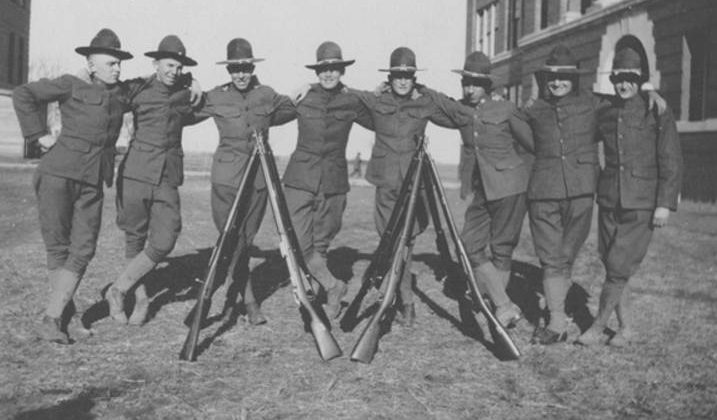
This black and white photograph shows eight members of the Student Army Training Corps. The SATC was approved by the War Department in 1917 to train young men for military service.
This photo is owned by Wayne State College. In a continuing effort to preserve and make accessible photographs depicting the history of Wayne State College and the region it serves, the Wayne State College Library is digitizing selected photographs from its archives. Photographs from the early 1900s included in Nebraska Memories show the buildings and grounds of the campus, athletic teams, the Student Army Training Corps, and other groups while slightly later images show famous visitors to campus.
Interested in seeing more Nebraska history? Check out all the collections on the Nebraska Memories archive!
Nebraska Memories is a cooperative project to digitize Nebraska-related historical and cultural heritage materials and make them available to researchers of all ages via the Internet. The Nebraska Memories archive is brought to you by the Nebraska Library Commission. If your institution is interested in participating in Nebraska Memories, see http://nlc.nebraska.gov/nebraskamemories/participation.aspx for more information.
Resources for Libraries and the 2020 Census

Apply by Nov. 22 for Library Census Equity Fund
The American Library Association (ALA) is accepting applications for Library Census Equity Fund mini-grants until Nov. 22. ALA will provide 25 libraries with $2,000 mini-grants to bolster their service to hard-to-count communities and help achieve a complete count in the 2020 Census.
Census hiring: Nov. 6 webinar and new tip sheet
The U.S. Census Bureau is currently hiring 500,000 temporary workers for the 2020 Census through an online application process. To achieve a complete count in the 2020 Census, the Census Bureau needs to recruit qualified and diverse applicants in every part of the country. To learn how libraries can promote awareness of 2020 Census job opportunities, register for ALA’s free webinar on Nov. 6 and read ALA’s new tip sheet, “How Can My Library Increase Awareness of 2020 Census Hiring?” (PDF).
Preparing your library for the Census: Nov. 14 webinar and new tip sheet
With the 2020 Census just a few months away, how can libraries prepare, and what funding sources may be available to support libraries’ preparations and activities? Learn more at ALA’s free webinar on Nov. 14 and read ALA’s new tip sheet, “Preparing My Library for the 2020 Census” (PDF).
Trustees invited to become Library Census Champions
Library Census Champions is a new network of state, local and tribal library Trustees helping their libraries and communities prepare for the 2020 Census. Elected and appointed library Trustees can sign up to become a Library Census Champion and receive free information, resources, and actions to take to ensure a fair and accurate census. To learn more about this program, Register to watch the recording on-demand.
Census resources from ALACheck ala.org/census for updates through the 2020 Census as ALA continues to add new resources. For instance, find Libraries Transform images, template presentation slides (PPTX) and presenter notes (PDF)
Upcoming events
- November 6, 2019: Webinar: “Connecting Your Community to 2020 Census Jobs”
- November 14, 2019: Webinar: “Preparing Your Library for the 2020 Census”
- January 25, 2019: ALA Midwinter Meeting: “2020 Census: How Libraries Can Support a Complete Count”
- February 28, 2019: PLA Conference: “2020 Census Countdown: What You Need to Know Now”
Continuing Education Grants!
Start planning ahead early and apply! This year, the Nebraska Library Commission is offering individuals $500 grants to attend the annual Association for Rural & Small Libraries (ARSL) 2020 Conference in Wichita, Kansas (Sept. 30th to Oct. 3rd)! Funding could go towards the cost of travel, hotel, meals, and/or registration costs.
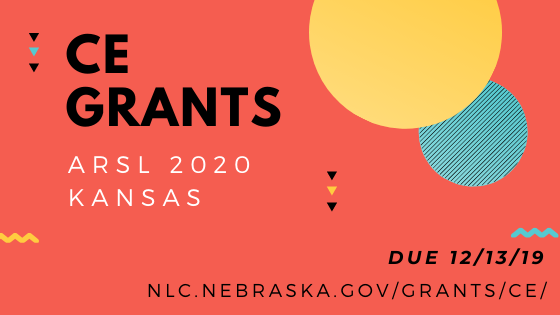
This is an awesome opportunity to attend an out-of-state (but nearby) conference focused on rural and small libraries! Details about the grant, along with the application forms can be found in the links below. Applications are due by December 13, 2019!
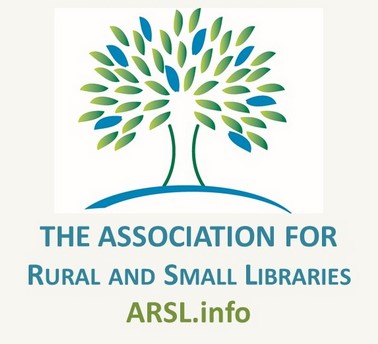
The purpose of these grants is to assist Nebraska libraries to improve the library services provided to their communities through continuing education and training for their library personnel and supporters. CE grants are open to applicants who are either 1) currently employed in an accredited Nebraska public library at the time of application and for the duration of the conference or a 2) current board member of an accredited Nebraska public library at the time of application and for the duration of the conference.
If you have any questions, please contact Holli Duggan, CE Coordinator.
Posted in Education & Training, Grants
Leave a comment
A History of the Census in the United States: Part 4
The Fourth Census: Census Day was August 7, 1820.
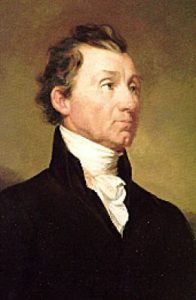
on Census Day, August 7, 1820.
Authorizing Legislation
The fourth census was taken in accordance with the census act of March 14, 1820, which required more detailed population-related inquiries than earlier enumerations. This census is notable for being the first to inquire if respondents were engaged in agriculture, commerce, or manufacturing.
Enumeration
The enumeration began on the first Monday of August. Its scheduled six-month completion time frame was extended by about seven months to September 1, 1821. As in previous decades, the 1820 census act again required assistant marshals to visit every dwelling house, or head of every family within their designated districts.
Data relating to manufacturing were collected by assistants in each district, sent to the marshals, and then transmitted to the secretary of state along with the population returns. The report on manufacturing presented the data for these establishments by counties, but the results were not summarized for each district and the aggregate statement that was released was based on incomplete returns. The 1820 manufacturing census suffers the same criticism as that in 1810: Poor enumerator training resulted in dramatic variations in data quality and accuracy.
Further Information
- A wide variety of historical statistics from this and other decades is available in Historical Statistics of the United States: Colonial Times to 1970. It is available as a PDF [74.4MB] or 2-part ZIP file: Part I [52.2MB] | Part II [66.1MB].
- Reports and statistics from the 1820 census
- History and Growth of the United States Census: 1790-1890 [PDF 117MB], by Carroll D. Wright and William C. Hunt.
November is Native American Heritage Month
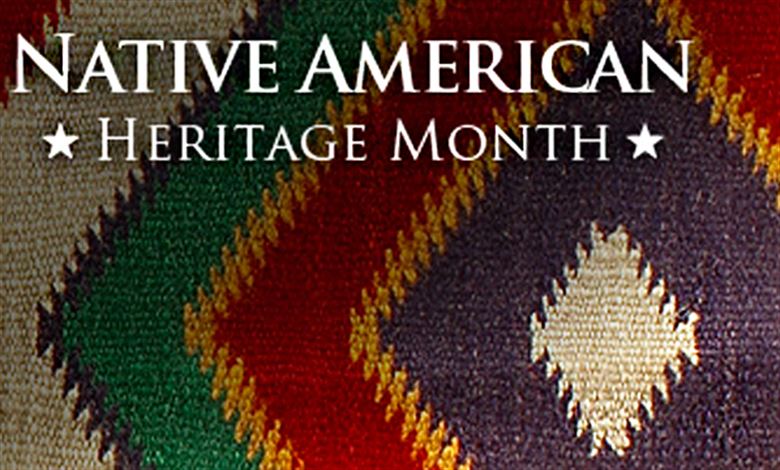
November is National American Indian Heritage Month. The Library of Congress, National Archives and Records Administration, National Endowment for the Humanities, National Gallery of Art, National Park Service, Smithsonian Institution and United States Holocaust Memorial Museum join in paying tribute to the rich ancestry and traditions of Native Americans.
Visit the National American Indian Heritage Month website to view a Calendar of Events, Exhibits and Collections, Audio and Video, Resources for Teachers, Images, and much more!
Book Briefs: New University of Nebraska Press Books at the Nebraska Publications Clearinghouse
 The Nebraska Publications Clearinghouse receives documents every month from all Nebraska state agencies, including the University of Nebraska Press (UNP). Each month we will be showcasing the UNP books that the Clearinghouse receives. UNP books, as well as all Nebraska state documents, are available for checkout by libraries and librarians, for their patrons, in Nebraska.
The Nebraska Publications Clearinghouse receives documents every month from all Nebraska state agencies, including the University of Nebraska Press (UNP). Each month we will be showcasing the UNP books that the Clearinghouse receives. UNP books, as well as all Nebraska state documents, are available for checkout by libraries and librarians, for their patrons, in Nebraska.
Here are the UNP books the Clearinghouse received in October:
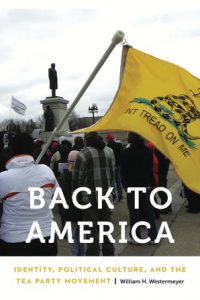 Back to America : Identity, Political Culture, and the Tea Party Movement William H. Westermeyer (Series: Anthropology of Contemporary North America)
Back to America : Identity, Political Culture, and the Tea Party Movement William H. Westermeyer (Series: Anthropology of Contemporary North America)
Back to America is an ethnography of local activist groups within the Tea Party, one of the most important recent political movements to emerge in the United States and one that continues to influence American politics. Though often viewed as the brainchild of conservative billionaires and Fox News, the success of the Tea Party movement was as much, if not more, the result of everyday activists at the grassroots level. William H. Westermeyer traces how local Tea Party groups (LTPGs) create submerged spaces where participants fashion action-oriented collective and personal political identities forged in the context of cultural or figured worlds. These figured worlds allow people to establish meaningful links between their own lives and concerns, on the one hand, and the movement’s goals and narratives, on the other. Collectively, the production and circulation of the figured worlds within LTPGs provide the basis for subjectivities that often nurture political activism.
Westermeyer reveals that LTPGs are vibrant and independent local organizations that, while constantly drawing on nationally disseminated cultural images and discourses, are far from simple agents of the larger organizations and the media. Back to America offers a welcome anthropological approach to this important social movement and to our understanding of grassroots political activism writ large.
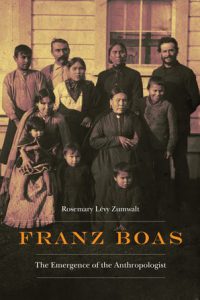 Franz Boas : The Emergence of the Anthropologist Rosemary Levy Zumwalt (Series: Critical Studies in the History of Anthropology)
Franz Boas : The Emergence of the Anthropologist Rosemary Levy Zumwalt (Series: Critical Studies in the History of Anthropology)
Rosemary Lévy Zumwalt tells the remarkable story of Franz Boas, one of the leading scholars and public intellectuals of the late nineteenth and early twentieth centuries. The first book in a two-part biography, Franz Boas begins with the anthropologist’s birth in Minden, Germany, in 1858 and ends with his resignation from the American Museum of Natural History in 1906, while also examining his role in training professional anthropologists from his berth at Columbia University in New York City.
Zumwalt follows the stepping-stones that led Boas to his vision of anthropology as a four-field discipline, a journey demonstrating especially his tenacity to succeed, the passions that animated his life, and the toll that the professional struggle took on him. Zumwalt guides the reader through Boas’s childhood and university education, describes his joy at finding the great love of his life, Marie Krackowizer, traces his 1883 trip to Baffin Land, and recounts his efforts to find employment in the United States. A central interest in the book is Boas’s widely influential publications on cultural relativism and issues of race, particularly his book The Mind of Primitive Man (1911), which reshaped anthropology, the social sciences, and public debates about the problem of racism in American society.
Franz Boas presents the remarkable life story of an American intellectual giant as told in his own words through his unpublished letters, diaries, and field notes. Zumwalt weaves together the strands of the personal and the professional to reveal Boas’s love for his family and for the discipline of anthropology as he shaped it.
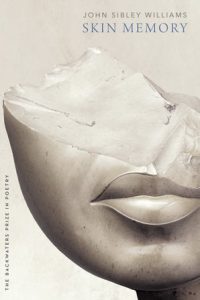 Skin Memory John Sibley Williams (Series: Backwaters Prize in Poetry)
Skin Memory John Sibley Williams (Series: Backwaters Prize in Poetry)
A stark, visceral collection of free verse and prose poetry, Skin Memory scours a wild landscape haunted by personal tragedy and the cruel consequences of human acts in search of tenderness and regeneration. In this book of daring and introspection, John Sibley Williams considers the capriciousness of youth, the terrifying loss of cultural identity and self-identity, and what it means to live in an imperfect world. He reveals each body as made up of all bodies, histories, and shared dreams of the future.
In these poems absence can be held, the body’s dust is just dust, and though childhood is but a poorly edited memory and even our well-intentioned gestures tend toward ruin, Williams nonetheless says, “I’m pretty sure, everything within us says something beautiful.”
 Terrorizing Gender : Transgender Visibility and the Surveillance Practices of the U.S. Security States Mia Fischer (Series: Expanding Frontiers: Interdisciplinary Approaches to Studies of Women, Gender, and Sexuality)
Terrorizing Gender : Transgender Visibility and the Surveillance Practices of the U.S. Security States Mia Fischer (Series: Expanding Frontiers: Interdisciplinary Approaches to Studies of Women, Gender, and Sexuality)
The increased visibility of transgender people in mainstream media, exemplified by Time magazine’s declaration that 2014 marked a “transgender tipping point,” was widely believed to signal a civil rights breakthrough for trans communities in the United States. In Terrorizing Gender Mia Fischer challenges this narrative of progress, bringing together transgender, queer, critical race, legal, surveillance, and media studies to analyze the cases of Chelsea Manning, CeCe McDonald, and Monica Jones. Tracing how media and state actors collude in the violent disciplining of these trans women, Fischer exposes the traps of visibility by illustrating that dominant representations of trans people as deceptive, deviant, and threatening are integral to justifying, normalizing, and reinforcing the state-sanctioned violence enacted against them.
The heightened visibility of transgender people, Fischer argues, has actually occasioned a conservative backlash characterized by the increased surveillance of trans people by the security state, evident in debates over bathroom access laws, the trans military ban, and the rescission of federal protections for transgender students and workers. Terrorizing Gender concludes that the current moment of trans visibility constitutes a contingent cultural and national belonging, given the gendered and racialized violence that the state continues to enact against trans communities, particularly those of color.
**All synopses courtesy of University of Nebraska Press (https://www.nebraskapress.unl.edu/)
The Public Library Survey is Now Available
 The public library survey is now available on Bibliostat. The survey is open for data collection from today (November 4, 2019) thru February 14, 2020, and covers the 2018-2019 fiscal year (typically either July 1, 2018 – June 30, 2019 or October 1, 2018 – September 30, 2019).
The public library survey is now available on Bibliostat. The survey is open for data collection from today (November 4, 2019) thru February 14, 2020, and covers the 2018-2019 fiscal year (typically either July 1, 2018 – June 30, 2019 or October 1, 2018 – September 30, 2019).
Here is the link to the survey. There is also a training guide on our website. If you need your password, or have questions about the survey, feel free to contact me. You can also enter your e-mail in the lost password part of our website.
For other guides, and copies of the survey you can review or print before entering your data into Bibliostat, check out the main Bibliostat page on our website.
I am here to help you with the survey. Feel free to contact me with any questions.
Posted in General, Library Management
Leave a comment
NCompass Live: Feeding America: Gardens, Seed Exchanges, Summer Meals, and More!
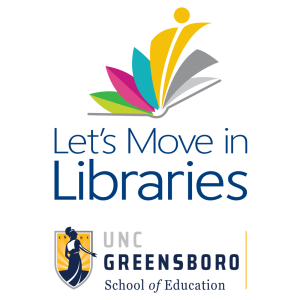 Learn how you can start Feeding America at your library on next week’s FREE NCompass Live webinar on Wednesday, November 6, 10:00am-11:00am CT.
Learn how you can start Feeding America at your library on next week’s FREE NCompass Live webinar on Wednesday, November 6, 10:00am-11:00am CT.
Three-quarters of the counties with the highest rates of food insecurity are in rural areas. This session will cover how public libraries feed America: 1) Distributing food at the library, 2) Teaching and supporting gardening, 3) Teaching how to prepare healthy food, and 4) Offering the library’s support to food programs (e.g. Farmers Markets). We will then go over how you can use the resources of the U.S. Department of Agriculture, including its Cooperative Extension, Summer Food Service, 4-H, and Master Gardener programs. We will conclude with interactive discussion on how you can start feeding America at your library.
Presenter: Noah Lenstra, Assistant Professor of Library and Information Science, University of North Carolina Greensboro and Director of Let’s Move in Libraries
Upcoming NCompass Live events:
- Nov. 13 – United for Libraries – Trustees, Advocates, Friends, and Foundations: The Voice for America’s Libraries
- Nov. 20 – VoteLibraries 2020 – Thinking About Elections and Libraries Without Being Partisan
- Dec. 4 – Libraries and the LGBT+ Experience
- Dec. 11 – Librarian in Training – For Kids!
 For more information, to register for NCompass Live, or to listen to recordings of past events, go to the NCompass Live webpage.
For more information, to register for NCompass Live, or to listen to recordings of past events, go to the NCompass Live webpage.
NCompass Live is broadcast live every Wednesday from 10am – 11am Central Time. Convert to your time zone on the Official U.S. Time website. The show is presented online using the GoToWebinar online meeting service. Before you attend a session, please see the NLC Online Sessions webpage for detailed information about GoToWebinar, including system requirements, firewall permissions, and equipment requirements for computer speakers and microphones.
#BookFaceFriday – “Komi Can’t Communicate” by Tomohito Oda
Is our quiet #BookFaceFriday coolly aloof…or just super awkward?
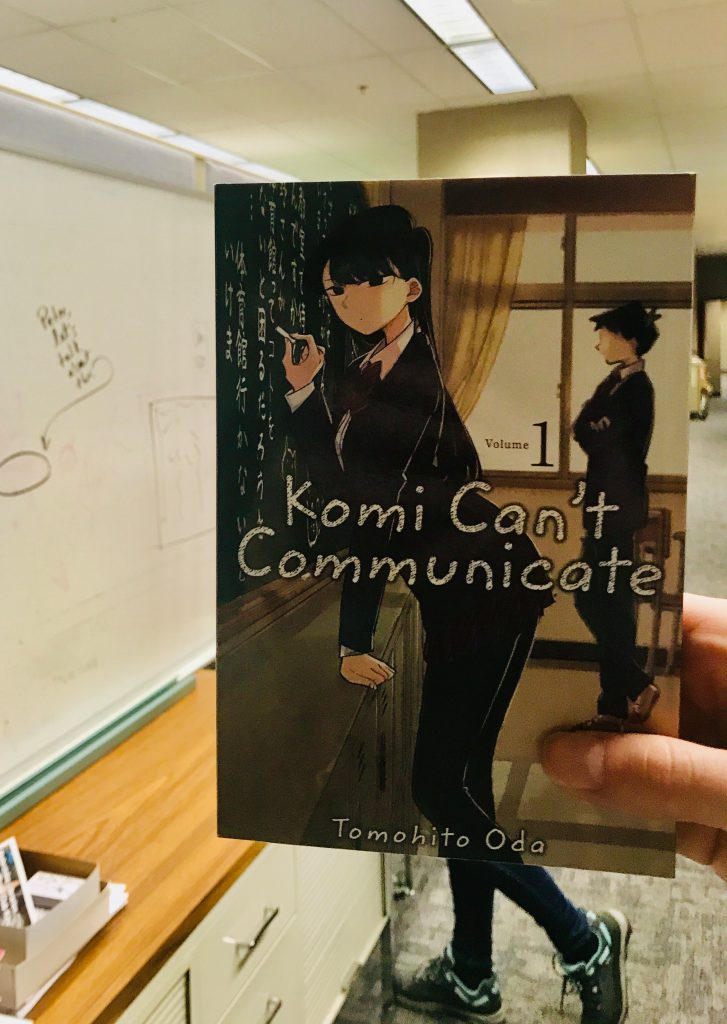
This #BookFaceFriday is also this week’s Friday Read’s post by our Youth Services Coordinator Sally Snyder! Read all about the first volume in this Manga series in her review.
“The journey to 100 friends begins with a single conversation.” – book cover
This week’s #BookFace model is Library Development Staff Assistant, Linda Babcock!
Love this #BookFace & reading? Check out our past #BookFaceFriday photos on the Nebraska Library Commission’s Facebook page!
Posted in Books & Reading
Tagged Book Covers, bookface, bookfacefriday, books, Manga
Leave a comment
Friday Reads: ‘Komi Can’t Communicate’ by Tomohito Oda
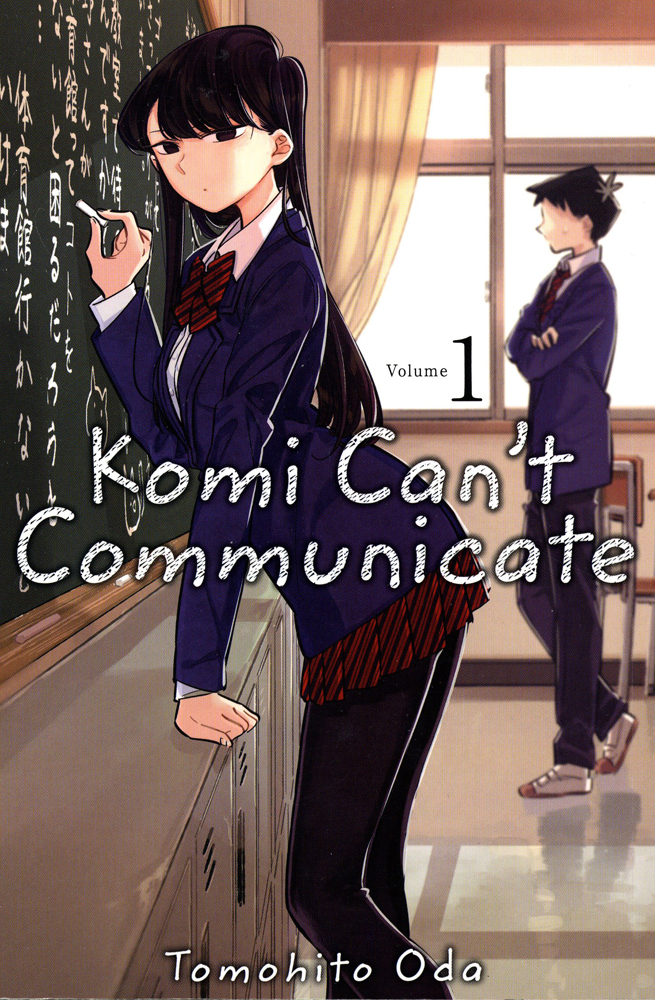
A black and white manga, set to read from back to front, as is done in Japan, this is the first book in a new series. Komi is the ultimate student at the high school and others are afraid to talk to her because she is aloof and extraordinary. Tadano is just happy he is now going to Itan Private High School, and he is planning to blend in and not be noticed. When asked to introduce herself, as all the students in class were asked to do on the first day, she walked to the front of the room, picked up the chalk, and wrote Shoko Komi on the board, walked back to her desk and sat down without saying a word.
At the end of the class, Tadano finds himself alone in the classroom with Komi after all the students and teacher have left. There he discovers Komi is not aloof, she freezes whenever she tries to speak to someone. She writes what she feels on the chalkboard, letting him know that she wants to make friends and hopes he will help her. Tadano finds he has promised to help her make 100 friends, starting with him. Tadano is in trouble now because he doesn’t have any friends yet, aside from Komi, and so has no one to introduce to her. Then he encounters Osana, an old friend from junior high, and she knows everyone in the school. Maybe they are on the way to making 99 more friends for Komi.
The artwork showing Komi with huge eyes or frozen and trembling does a great job of conveying her level of discomfort and social anxiety.
There are three volumes out now, and volume four will be published in December. The entry on Amazon says there will be six volumes in this series, and I definitely want to read the titles that are available now.
Oda, Tomohito. Komi Can’t Communicate, Volume 1. VIZ Media, 2019.

